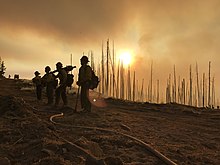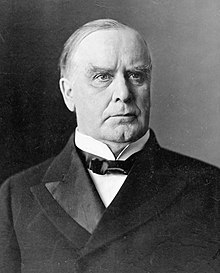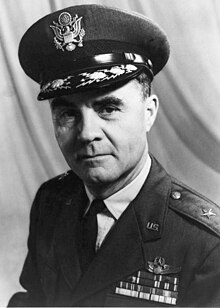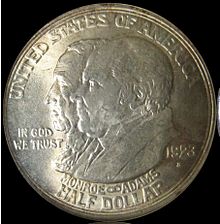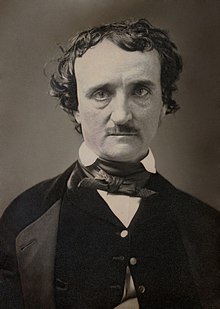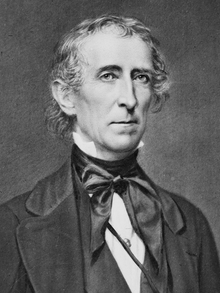Portal:United_states
Portal:United States
 | |
 | |

- ... that the 1935 film Navy Wife, starring Claire Trevor, was the first film that deals with life as part of the Navy Nurse Corps and Medical Corps of the United States Navy?
- ... that according to Theodore Roosevelt, U.S. Supreme Court justice David J. Brewer had "a sweetbread for a brain" and was a "menace to the welfare of the Nation"?
- ... that channel 31 in Denver was planned to broadcast in Spanish – until the 1980 United States census figures came out?
- ... that the 2022 USFL playoffs and championship game could not be played in Birmingham, Alabama, as the rest of the season was, due to the 2022 World Games?
- ... that "Fear", an episode of The 1619 Project, traces present-day vigilante violence against Black youths in the United States to the fear of slave rebellions?
- ... that the 2022 Ticketmaster controversy over Taylor Swift's the Eras Tour has triggered investigations by several U.S. state attorneys general and the federal Department of Justice?
- ... that the notorious labor spy and killer Charles Lively was so successful infiltrating the coal miners union that he once posed for a photo with the famed labor activist Mother Jones?
- ... that American author Marilyn Gayle Hoff was honored by a Fourth of July parade float as an unsung hero?
As president, Ford signed the Helsinki Accords, marking a move toward détente in the Cold War, even as South Vietnam, a former ally, was invaded and conquered by North Vietnam. Ford did not intervene in Vietnamese affairs, but did help extract friends of the U.S. Domestically, the economy suffered from inflation and a recession under President Ford. One of his more controversial decisions was granting a presidential pardon to President Richard Nixon for his role in the Watergate scandal. In 1976, Ford narrowly defeated Ronald Reagan for the Republican nomination, but ultimately lost the presidential election to Democrat Jimmy Carter.
In 1776, the Spanish settled the tip of the peninsula, establishing a fort at the Golden Gate and a mission named for Francis of Assisi. The California Gold Rush in 1848 propelled the city into a period of rapid growth. After being devastated by the 1906 earthquake and fire, San Francisco was quickly rebuilt.
San Francisco is a popular international tourist destination renowned for its steep rolling hills, an eclectic mix of Victorian and modern architecture, and famous landmarks, including the Golden Gate Bridge, Alcatraz Island, the cable cars, Coit Tower, and Chinatown. The city is also known for its diverse, cosmopolitan population, including large and long-established Asian American and LGBT communities. While the climate includes chilly summer fog, the winters are mild.
- 1856 – Five hundred Mormons, latter called the Mormon handcart pioneers, leave Iowa City, Iowa and head west for Salt Lake City, carrying all their possessions in two-wheeled handcarts.
- 1862 – American Civil War Confederate general Stonewall Jackson concludes his successful Shenandoah Valley Campaign with a victory in the Battle of Port Republic; his tactics during the campaign are now studied by militaries around the world.
- 1916 – Robert McNamara (pictured), who as Secretary of Defense under Presidents John F. Kennedy and Lyndon B. Johnson played a pivotal role in both the escalation of the Vietnam War and the deescalation of the Cuban Missile Crisis, was born.
- 1954 – Joseph Welch, special counsel for the United States Army, lashes out at Senator Joseph McCarthy during hearings on whether Communism has infiltrated the Army giving McCarthy the famous rebuke, "You've done enough. Have you no sense of decency, sir, at long last? Have you left no sense of decency?". The rebuke is considered the symbolic end of McCarthyism.
- ... that the Catskills' Esopus Creek (pictured, near Shandaken) is one of the most productive trout streams in the Northeast?
- ... that although the Anacostia Waterfront Corporation was created in 2004 to implement a 20-year, $8 billion redevelopment plan in Washington, D.C., it was abolished after just three years?
- ... that Max Desfor's image Flight of Refugees Across Wrecked Bridge in Korea was taken during the longest retreat in the military history of the United States?
|
Culture Education Economy |
Geography Government
History |
Law Media Natural history |
People Protected areas Religion Transportation |
| ||||
|
To create
To discuss on Articles for deletion
To expand To destub |
Assessment requests New articles Most Popular pages To find images |
Maintenance and cleanup
Other issues
| ||
State-related
Region or city-related
Sports-related
Transportation-related
Other US-related
Nearby areas
The following Wikimedia Foundation sister projects provide more on this subject:
-
Commons
Free media repository -
Wikibooks
Free textbooks and manuals -
Wikidata
Free knowledge base -
Wikinews
Free-content news -
Wikiquote
Collection of quotations -
Wikisource
Free-content library -
Wikiversity
Free learning tools -
Wikivoyage
Free travel guide -
Wiktionary
Dictionary and thesaurus



